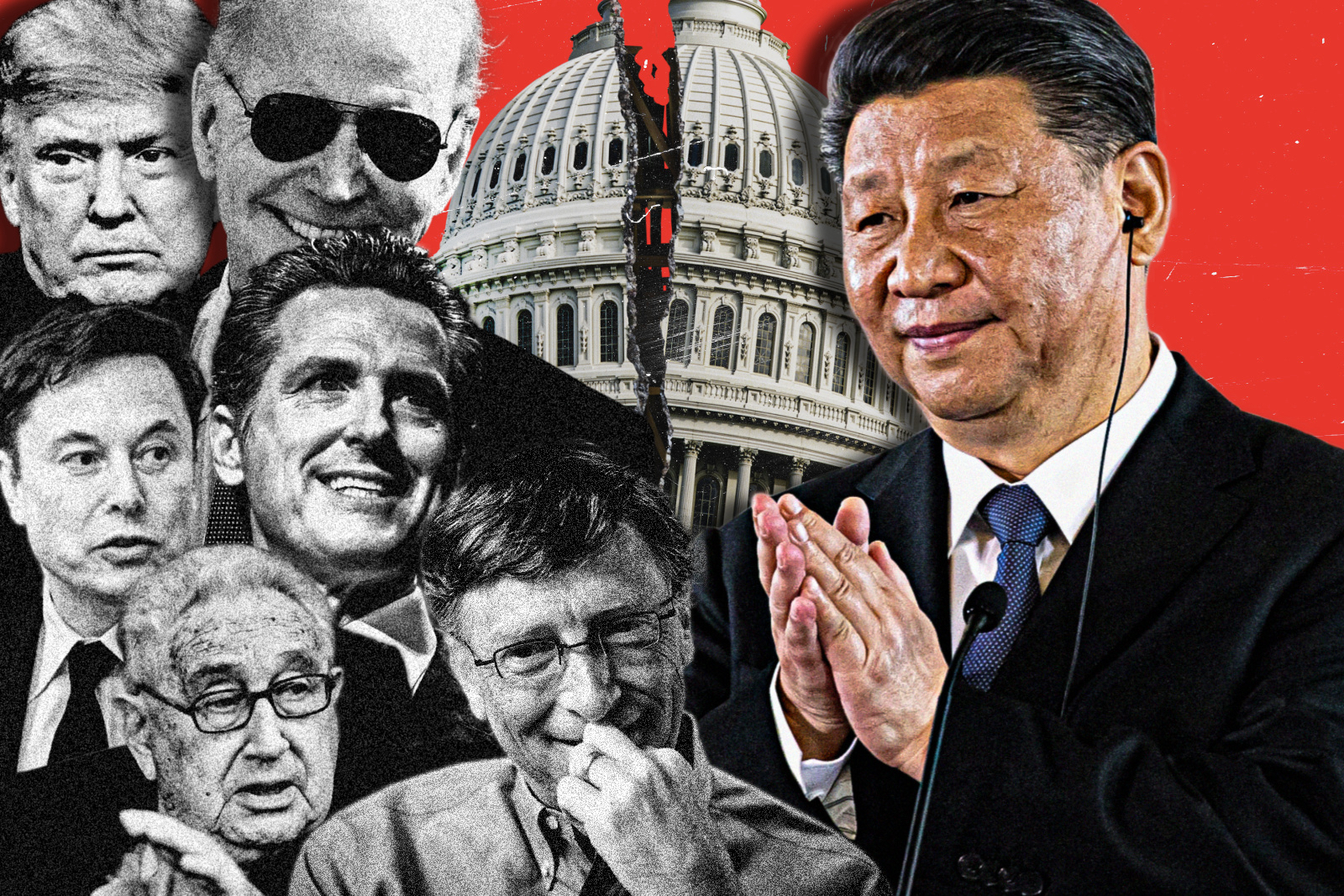
The False Narrative of a Chinese Threat
In a world swiftly redefining its power structures, a quartet of American notables—Elon Musk, Bill Gates, California Governor Gavin Newsom, and venerable diplomat Henry Kissinger—have sought dialogue with China’s leadership, including President Xi Jinping. Their approach diverges markedly from the adversarial stance entrenched in U.S. policy under both the Trump and Biden administrations. This cohort recognizes China as an integral component of the global fabric, advocating for a relationship with Beijing that prioritizes mutual respect, peaceful coexistence, and collaboration.
The trajectory of U.S. foreign policy has been unduly influenced by hegemonic aspirations, an echo of the post-Cold War era’s isolationism. This has manifested in an American obsession with China, inflating its threat to near-mythic proportions. Contemporary U.S. politicians appear to be suffering from historical amnesia, disregarding the perilous tightrope walks of the Cold War—the Cuban Missile Crisis that flirted with nuclear annihilation and the Korean War’s grim toll. They neglect the crucial differences between China and the Soviet Union, as well as the evolution from a bifurcated Cold War globe to today’s intricately interwoven international community. They overlook the fundamental reality that the United States no longer reigns as the sole titan in the economic and technological arenas.
A certain faction within American politics has taken to demonizing China as a cornerstone of a misguided policy designed to estrange international partners from Beijing, thereby perpetuating a delusional narrative of American singularity. This approach has ensnared the country in a web of extremism, empowering fringe groups and endangering both U.S. interests and global stability. The arrogance implicit in such a policy blinds its proponents to the untenable prospect of a world order that excludes China.
Conversely, there exists a cadre of influential thinkers who reject the notion of China’s exclusion from the global stage. They comprehend the dense web of global interdependence and the robustness of the worldwide supply chain. Industry titans like Musk and Gates, alongside moderate politicians like Newsom and seasoned diplomats such as Kissinger, perceive the grave risks associated with a headlong clash with China. They acknowledge China’s pivotal position in the global technology sphere, buoyed by its abundance of rare earth materials, and they understand that alienating China could result in significant market losses.
Henry Kissinger, the strategist behind the historic thaw in U.S.-China relations, has recently re-engaged with Chinese leaders. Armed with the insights gleaned from navigating the treacherous waters of the Cold War, he advocates for sustained communication channels with Beijing. Kissinger’s encounters with Chinese officials underscore his belief in the necessity of maintaining open lines of diplomacy and avoiding actions that would precipitate a point of no return. He has expressed grave concerns over the potential for military confrontation in the coming decade, a scenario he views as catastrophic for all involved.
Xi Jinping and other Chinese leaders have consistently demonstrated a preference for de-escalating tensions with the U.S. Unfortunately, their overtures have been met with a lackluster response from the Biden administration. This disheartening reality has driven them to seek engagement with American intellectuals and public figures who appreciate the imperatives of global interdependence and the importance of curtailing the rise of tensions between the superpowers.
These individuals represent a bridge between the old guard and a new era of Sino-American relations. Wang Yi, China’s top diplomat, has highlighted the need for the United States to adopt the diplomatic sagacity of Kissinger and the political fortitude reminiscent of Nixon, in the face of bipartisan hostility towards China. Wang Yi emphasizes that the momentum behind China’s growth is fortified by strong internal dynamics and a historical trajectory that cannot be halted by external forces.
The U.S. leadership crisis has catalyzed a trend among American politicians to distract the electorate by magnifying the Chinese threat and allocating undue attention and resources to this supposed adversary. This tactic serves to mask their own inefficacies and misguided policies, unwittingly empowering conservative isolationists like former President Donald Trump and his MAGA acolytes, and ensnaring the U.S. in a vicious cycle of extremism. This political maneuvering has not escaped the notice of Chinese leaders or U.S. visionaries, who are endeavoring to awaken the world—and the American populace—to the hazards of Washington’s antagonistic policies towards Beijing.
